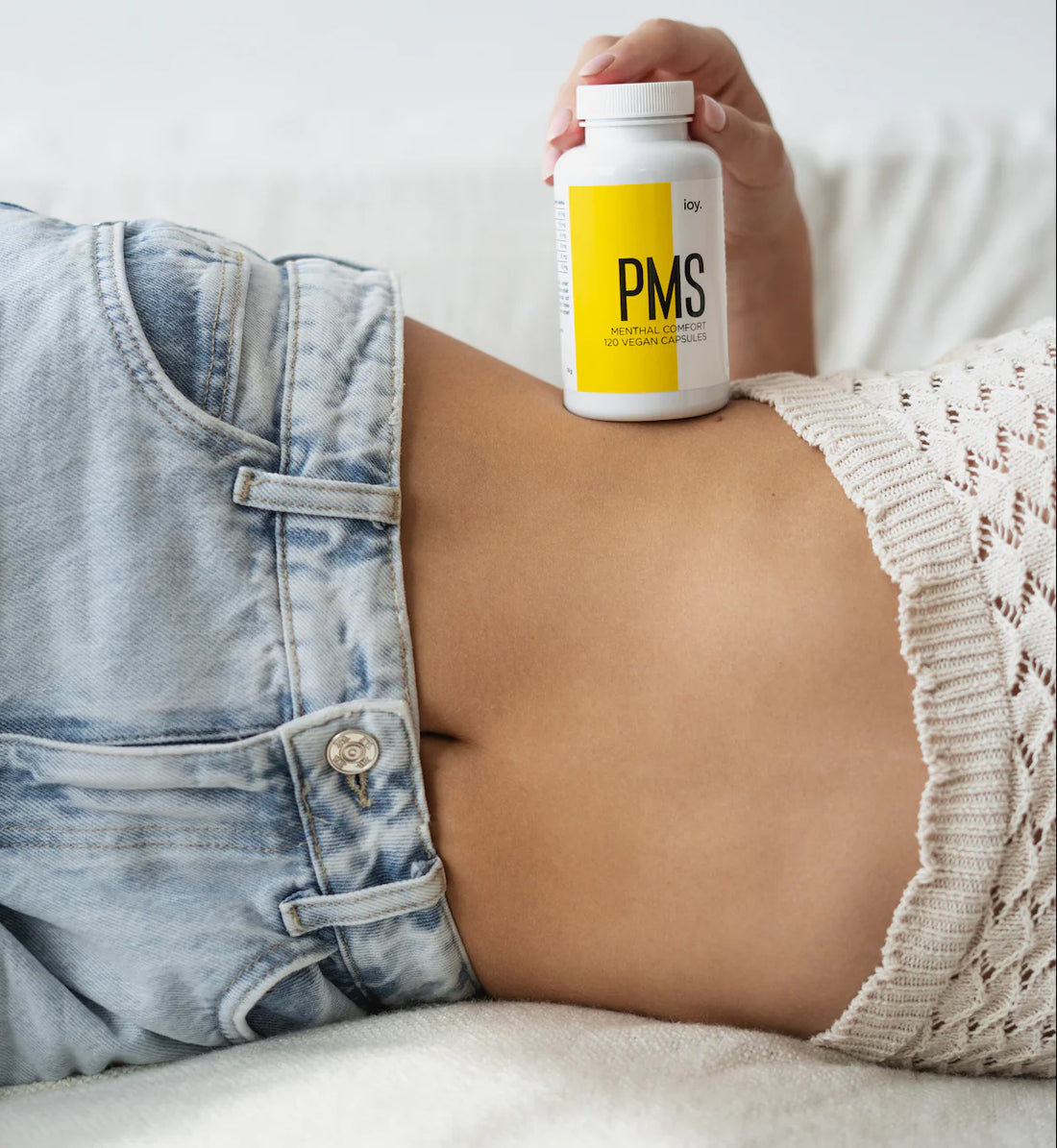
PMS is not just a state of mind
Share
What is PMS?
PMS, short for premenstrual syndrome, is a combination of physical and emotional symptoms that many women experience a week or two before their period. This syndrome is associated with a drop in estrogen and progesterone levels after ovulation if the woman is not pregnant and usually subsides after the onset of menstruation. For some women, PMS may be mild or unnoticeable, while for others, it may be difficult to carry out normal daily activities. In some women, the symptoms can be so severe that it is called premenstrual dysphoric disorder (PMDD). PMS subsides after menopause.
Who suffers from PMS?
PMS affects up to three out of four women at some point in their lives, with most experiencing mild symptoms. Less than 5% of women suffer from a more severe form of PMS, known as PMDD. Several factors can increase the risk of PMS, including high stress, a family history of depression, and a personal history of postpartum or other forms of depression.
Is PMS related to age?
Yes, PMS symptoms can worsen between the ages of 30 and 40, especially as a woman approaches menopause or the transition to menopause, known as perimenopause. Changes in hormone levels during the menstrual cycle can be more sensitive in some women, causing sudden mood swings. PMS subsides after menopause when a woman no longer menstruates.
What are the symptoms of PMS?
PMS symptoms vary, and every woman experiences different changes. These symptoms can include both physical and emotional manifestations. The most common physical symptoms are swollen or tender breasts, indigestion, pain, cramps, migraines, and sleepiness. The most common emotional symptoms of PMS are irritability, fatigue, sleep problems, changes in appetite, anxiety, depression, and more. Some women may experience increased moodiness and decreased libido.
What causes PMS?
The exact cause of PMS is not fully understood, but changes in hormone levels during the menstrual cycle may play a key role. Sometimes these changes affect some women more than others. Diagnosing PMS is not easy, as there is no specific test to confirm it. A doctor will usually evaluate symptoms based on their frequency and impact on a woman's daily life.
How to relieve PMS symptoms at home?
There are various ways to relieve PMS symptoms at home. Regular physical activity, a healthy diet, enough sleep, and stress management can help alleviate symptoms. Not smoking is also important because smoking can worsen PMS symptoms.
Medications to relieve PMS symptoms
Over-the-counter pain medications such as ibuprofen or aspirin can help relieve the physical symptoms of PMS. Prescription medications, including hormonal birth control and antidepressants, may be helpful for women for whom over-the-counter medications are not enough. However, contraception works like makeup for acne; after removing the makeup, acne still exists, and it is necessary to address it from the inside and find the cause.
Vitamins and minerals
Some studies show that vitamins and minerals, such as calcium and vitamin B6, can help relieve some PMS symptoms.
Complementary and alternative medicines for symptom relief
Some women find relief from PMS symptoms through yoga, meditation, or herbal supplements such as black cumin, bilberry, or evening primrose oil. These supplements also include ioy.GOOD MOOD and ioy.PMS, which contain a complex combination of ingredients that can help alleviate the symptoms of premenstrual syndrome.
These products include acacia fiber, calcium, L-Glutamine, magnesium, soy isoflavone extract, zinc, vitamin B6, vitamin K2 MK-7, and vitamin D3. Each of these ingredients has a specific role in regulating hormonal balance and promoting the well-being of body and mind. Let's discuss in more detail:
- Acacia fiber: Derived from the acacia tree, this fiber significantly impacts digestive health. It helps regulate digestion and prevent issues like constipation or diarrhea. With PMS, it can help relieve digestive problems that may occur as part of the symptoms.
- Calcium (calcium citrate): Essential for strong bones and teeth, calcium also plays other roles in the body. For PMS, it can help relieve symptoms like moodiness and breast tenderness. It also significantly affects muscle and nervous system function.
- L-Glutamine: An amino acid that supports the immune system and treats digestive problems. It helps restore and repair the intestinal mucosa and can be beneficial for women experiencing digestive issues during PMS.
- Magnesium (magnesium citrate): An essential mineral that affects many aspects of health. For PMS, it can help relieve cramps, relax muscles, and ease nervous tension. It can also contribute to improving sleep quality.
- Vitamin B6 (pyridoxine hydrochloride): Important for hormone regulation, it can help alleviate moodiness, anxiety, and other psychological symptoms of PMS. It is also involved in blood sugar regulation, which can affect appetite and energy levels.
- Vitamin K2 MK-7 (menaquinone): Important for bone health, it can help improve bone density and prevent osteoporosis. This is particularly important for women who suffer from bone pain during PMS.
- Vitamin D3 (cholecalciferol): Important for calcium absorption and immune system function. For PMS, it can help relieve symptoms and improve overall condition.
- Soy isoflavone extract: Phytoestrogens that can help regulate hormones in the female body, potentially positively affecting physical PMS symptoms.
- Zinc (zinc gluconate): Important for immune system function and various biochemical processes. It can help relieve PMS symptoms and improve overall well-being.
These ingredients have demonstrable effects on hormone regulation, alleviating psychological and physical symptoms of PMS, and improving overall well-being during the premenstrual period and throughout the menstrual cycle.
PMS is a medical condition that can affect the quality of life for many women. It's important to seek help if PMS symptoms are affecting you.